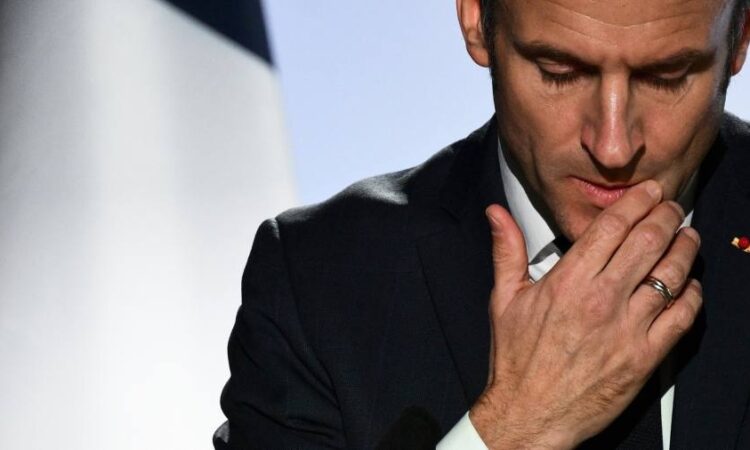
The writer is editorial director and a columnist at Le Monde
On January 19, Emmanuel Macron goes to Barcelona to sign a bilateral friendship treaty with Spain. Three days later, in a grand ceremony in the Sorbonne, France and Germany will give a much-needed boost to their special relationship by celebrating the 60th anniversary of the Elysée Treaty signed by Charles de Gaulle and Konrad Adenauer.
In true French fashion, this diplomatic feast may well be marred by a new wave of social unrest. When Macron is in Barcelona unions and opposition parties will take to the streets, having promised “the mother of all battles” to defeat the government’s planned pension reform. Nobody dares to predict whether the protest will stop there or morph into something bigger.
So goes the life of the French president, almost one year into his second term: champion of European sovereignty and hyperactive diplomat abroad; unpopular and seen as a stubborn reformer at home.
But is he even still a reformer?
The choice of the Sorbonne for the Franco-German ceremony is no coincidence. This is where, in September 2017, a freshly elected President Macron outlined his ambitious vision for Europe, which the then very experienced German chancellor Angela Merkel proceeded to ignore. The ambition is still there, Merkel is gone and Macron has definitely made his mark on the European scene. He may face a different Germany today, shaken by the war in Ukraine, but he knows that his credibility as a European leader depends on his ability to reform at home.
Macron came into office as the man who would unblock France. His election campaign, with its “En Marche!” slogan complete with exclamation mark, was meant to set the country in motion. Voters liked the liberating energy. He did pass a reform of labour laws, but the bold promises of his first term soon ran into an obstacle; the traumatic revolt of the gilets jaunes killed the momentum of his first quinquennat. Then two years of Covid pandemic buried what was left of the reformist agenda.
Winning a second term in such adverse conditions last year was an achievement, but the magic is gone. The president, now 45, faces an even more pessimistic country, which denied him a parliamentary majority barely two months after re-electing him. His reformist ambitions may be intact, but his ability to deliver is even more compromised than in his first term.
His new push for reform of the pension system, raising the legal retirement age from 62 to 64 by 2030 and increasing the minimum pension to €1,200, is not only timid by European standards — it is a watered-down version of his previous attempt in 2019. Too radical and ill-prepared, that version was met with strikes and demonstrations before being swept away by the pandemic.
Critics argue that the president is again taking a huge risk in pushing for a reform which, given the current state of the public finances, is not even that pressing. But Macron, with his legacy in mind, has set himself a broader goal. He aims to be the leader who put France back to work and stopped its slide into the abyss of budget deficits.
After the generous “whatever it takes” policies adopted during the pandemic, Macron wants to bring France’s budget deficit back to less than 3 per cent before he leaves office in 2027.
France has long been plagued by mass joblessness. On this front, Macron has a few successes to his credit: unemployment has been brought down from 9.4 per cent in 2017 to 7.3 per cent in the third quarter of 2022, while vocational training for young people has been successfully increased. The French, their president insists, are ageing and therefore must work longer. But if he wants to convince them, this cannot be only about the numbers. It also has to be about the meaning of work itself.
An important debate is taking place in France about “la valeur travail”, or labour value, to which lockdown and increased working from home (télétravail) have given new impetus. The deeper effects of the pandemic on French society are now surfacing. Hospital workers are burnt out, staff have deserted the public transport sector and schoolteachers are going missing. And many of those who are employed are resentful of a social benefits system which does not seem to make work pay.
Whether Macron and his more labour-oriented prime minister Élisabeth Borne can find common ground with the shifting beliefs of their compatriots will be crucial to the fate of pension reform. Meanwhile, closely watching this battle with an eye on 2027 is Marine Le Pen. For Macron, being succeeded by the leader of the far-right Rassemblement National would be the worst possible legacy.






